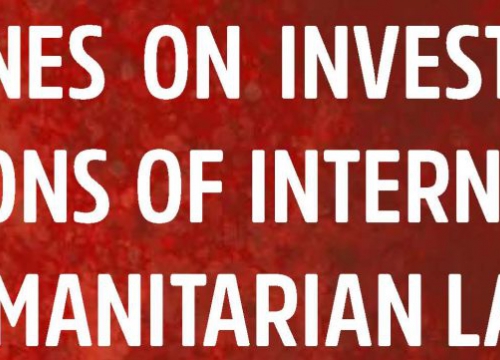Launch in New York: Guidelines on Investigating Violations of IHL
Event


Geneva Academy/ICRC
Investigations into alleged violations of international humanitarian law (IHL) by the parties to an armed conflict are not only crucial to securing respect for IHL, but also to preventing future violations and enabling redress for victims of past violations. Despite the unquestionable importance of investigations, there is a lack of detail with regard to the international law, principles and standards relevant to investigations in armed conflicts. This is further reflected in the disparate practice across States in the way investigations are carried out.
The new Guidelines on Investigating Violations of IHL: Law, Policy, and Good Practice – the outcome of a five-year project initiated in 2014 by the Geneva Academy and joined in 2017 by the International Committee of the Red Cross (ICRC) – aim to bring much needed clarity and support for the conduct of effective investigations into violations of IHL.
This event, co-organized with the Swiss Permanent Mission to the United Nations (UN) in New York, will present the 16 guidelines to the New York diplomatic community and discuss the challenges surrounding investigations of IHL violations as well as the manner in which states should be approaching their investigations.
Opening Remarks
- Vincent Rittener, Legal Advisor, Swiss Permanent Mission to the UN in New York
Moderation
- Kamelia Kemileva, Senior Consultant, Geneva Academy
Panelists
- Sarah Cleveland, Professor for Human and Constitutional Rights and Faculty Director of the Human Rights Institute, Columbia Law School
- Noam Lubell, Swiss IHL Chair at the Geneva Academy, Professor of International Law at the University of Essex and Co-author of the Guidelines
- Jelena Pejic, Senior Legal Adviser at the ICRC and Co-author of the Guidelines
Lunch
A light lunch will be served.







